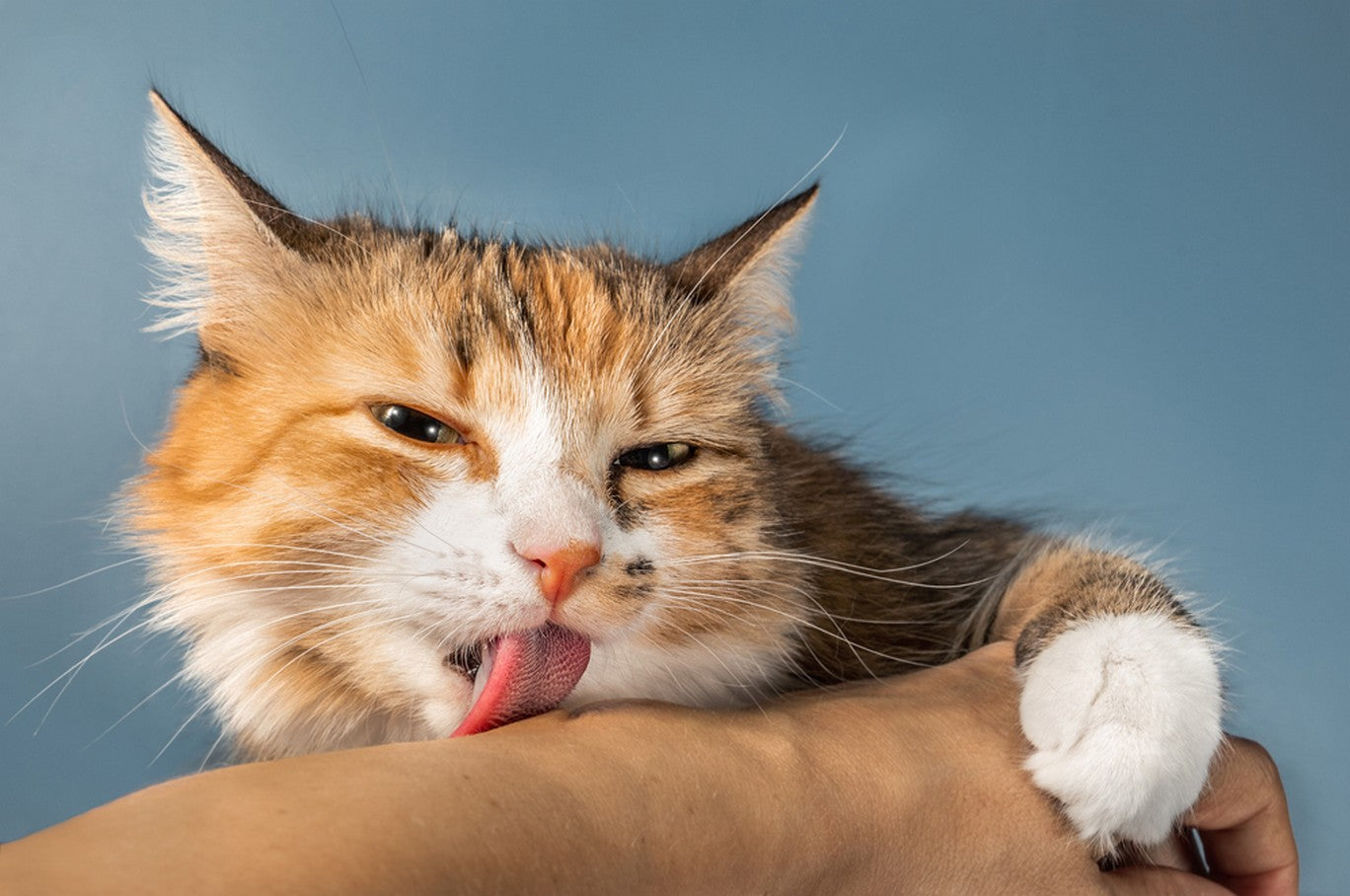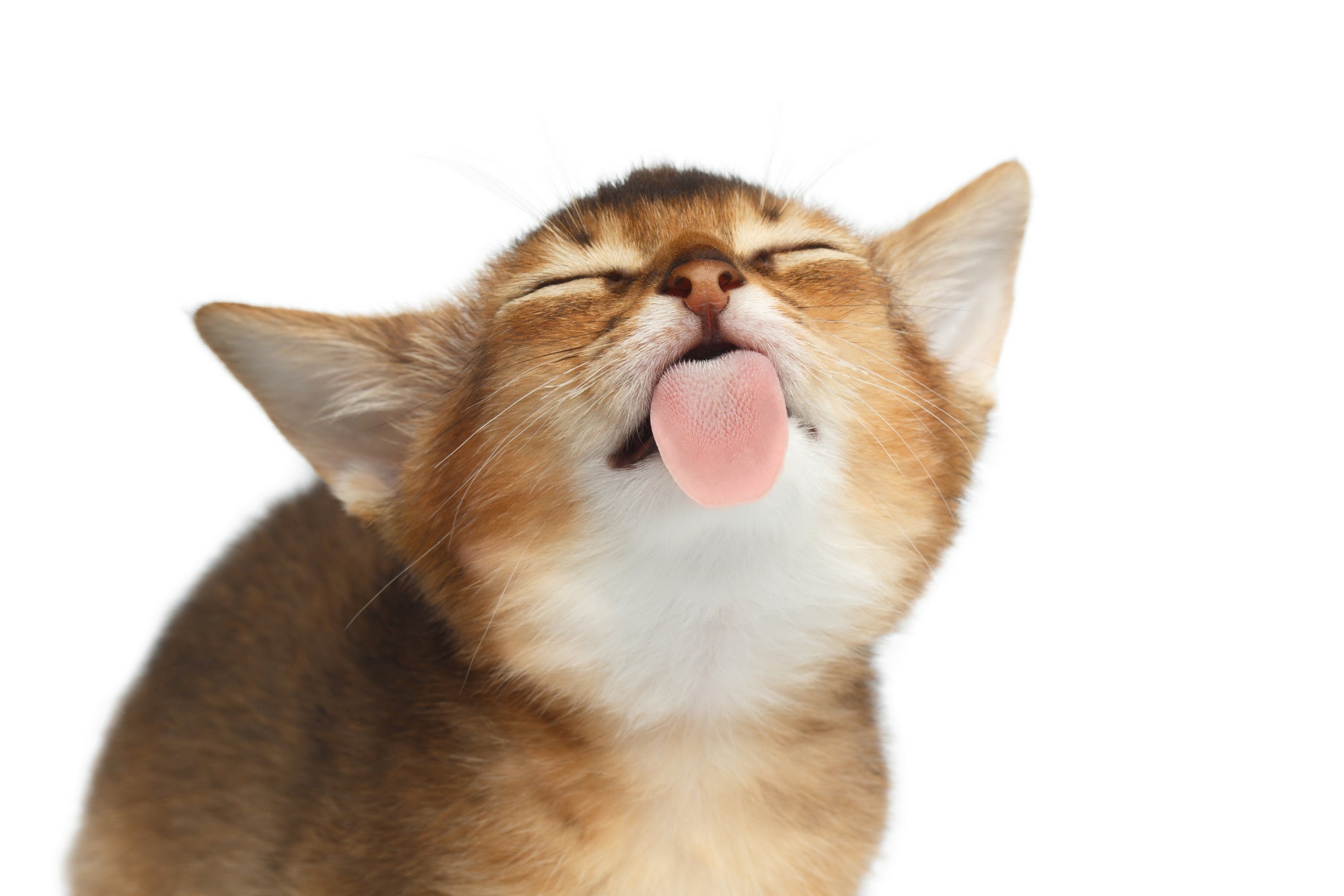Grooming affection is a common behavior that many cat owners experience, and understanding why your feline friend licks you can deepen the bond you share. Cats engage in licking for various reasons—be it to show love, seek attention, or even mark you with their scent.
Key Takeaways:
- Affection: Cats often lick their owners as a sign of affection and bonding, mimicking the behavior they exhibit towards their feline companions.
- Grooming: Licking can also be a form of grooming, as cats may feel the need to clean you like they would their own fur, furthering their sense of connection with you.
- Stress Relief: The act of licking can provide comfort and stress relief for cats, making it a soothing activity when they are feeling anxious or insecure.
Understanding Cat Behavior

To comprehend why your cat licks you, it’s crucial to investigate into the intricacies of their behavior. Cats are complex creatures, and their actions can be influenced by a variety of factors ranging from evolutionary instincts to social interactions. Recognizing these motivations can help you foster a deeper connection with your feline companion.
Evolutionary Perspectives
Any cat behavior has deep roots in evolution. For thousands of years, cats have relied on grooming not only for hygiene but also for survival. Licking serves to remove dirt and parasites and is an instinctual behavior that can be traced back to their wild ancestors. Understanding this connection can shed light on your cat’s need to lick you.
Social Bonding
The act of licking is also a powerful means of social bonding among cats. When your cat licks you, it is often a sign of affection and trust, much like how they would groom their littermates or mother. This behavior strengthens your bond and reinforces their feelings of safety around you.
Evolutionary studies reveal that grooming behavior in cats is a critical part of their social interaction. When your cat licks you, it signifies their desire to create a close relationship, as grooming amongst each other fosters trust and camaraderie. This instinct can be traced back to their kittenhood, where they learned that grooming was a way to communicate love and bond with their family. By reciprocating this behavior and understanding its significance, you can enhance the emotional connection you share with your pet.
Reasons Cats Lick Humans
Little do you know, when your cat licks you, it’s communicating various emotions and behaviors. Understanding these reasons can deepen your bond with your feline friend and enhance your relationship.
Affection and Grooming
Any cat owner knows that licking can signify affection. Much like how a mother cat grooms her kittens, your cat may see you as part of their family and engage in grooming behaviors to show love and care.
Marking Territory
Lick marks are a way for cats to claim their territory. Your scent transfers onto their fur, establishing a familiar boundary that signifies you as part of their safe space.

With scent glands located in their mouths, when your cat licks you, it’s not just about affection; they are depositing their scent as a way to mark you as their own. This behavior is deeply rooted in their instinctual need to assert ownership and comfort within the space they share with you.
Seeking Attention
Attention-seeking behavior is another reason your cat may lick you. If they want your affection or a bit of playtime, licking can be their way of asking for interaction.
For instance, if your cat starts licking you while you’re sitting on the couch, it might just be their way of saying, “Hey, notice me!” Cats thrive on interaction, and licking can be a gentle (or not so gentle!) nudge to get your attention and engage in a bonding activity.
Exploring Taste and Texture
The texture of your skin can intrigue your cat, prompting them to lick in order to explore. Cats often discover new sensations through taste and feel, and they might find your skin’s unique qualities interesting.
Texture plays a significant role in your cat’s licking habits. They might be attracted to specific scents or tastes lingering on your skin, such as lotions or food remnants, turning their licking into a sensory experience that allows them to explore and understand the world around them more intimately.
Behavioral Issues
An excessive licking habit can sometimes be a sign of behavioral issues, such as anxiety or stress. If your cat licks you frequently, it may be a coping mechanism for dealing with an uncomfortable environment. Observing your cat’s overall behavior and surroundings can help identify triggers that may contribute to their need for excessive grooming.
Health Concerns
Concerns about excessive licking can also stem from potential health issues affecting your cat. This behavior may sometimes indicate skin allergies, infections, or parasites like fleas. It’s necessary to monitor any accompanying symptoms that may signal an underlying health condition.
With this in mind, if you notice changes in your cat’s grooming behavior, consider consulting your veterinarian for a thorough examination. They can help you rule out any medical problems and provide guidance on how to manage excessive licking, ensuring both you and your feline friend remain happy and healthy.
Managing Your Cat’s Licking Behavior
Keep in mind that modifying your cat’s licking behavior requires patience and consistency. You can utilize training techniques to redirect their focus when they begin to lick excessively. For instance, you might encourage them to engage with a toy or treat, rewarding them for the desired behavior instead of licking. Over time, this can establish new habits that minimize excessive licking.
Training Techniques
To effectively manage your cat’s licking, consider implementing positive reinforcement strategies. When you notice your cat pausing from licking, immediately reward them with praise, treats, or affection. This will help reinforce the idea that not licking is a good behavior. Avoid punitive measures, as those can lead to anxiety or distress in your pet.
Providing Alternatives
On the other hand, offering alternatives is necessary in managing your cat’s licking behavior. By engaging your cat in other forms of interaction, you can divert their attention away from licking you. Consider introducing new toys, interactive play sessions, or scratching posts that fulfil their need for stimulation.
Cats often lick as a part of their natural behavior, so you’ll want to provide various alternatives that cater to this instinct. Toys that mimic prey or puzzle feeders can engage your cat’s hunting instincts while keeping their minds occupied. Additionally, regular playtime strengthens your bond while providing an outlet for their energy. By consistently offering these alternatives, you can reduce disruptive licking and encourage healthier behaviors.
Conclusion

Considering all points, your cat may lick you as a sign of affection, to mark you with their scent, or even to express anxiety. This grooming behavior is deeply rooted in feline social interactions and communicates trust and comfort. Understanding these motivations can enhance your bond with your feline friend, reminding you that their displays of affection are unique to your relationship. Observing your cat’s body language and context will provide further insight into their licking behavior.
FAQ
Q: Why does my cat lick me?
A: When your cat licks you, it can be a sign of affection. Cats often groom each other as a bonding activity, and by licking you, your cat may be showing that they consider you part of their family. This behavior can also indicate trust, as cats generally reserve grooming for those they feel safe and comfortable with.
Q: Is my cat licking me a sign of anxiety or stress?
A: While licking can be a sign of affection, it may also be a response to stress or anxiety. If your cat is licking excessively or appears anxious, it might be trying to self-soothe. This compulsive licking can provide comfort to your cat. If you notice changes in your cat’s behavior or an increase in licking, it may be worth consulting a veterinarian to rule out any underlying issues.
Q: What should I do if I don’t like my cat licking me?
A: If your cat’s licking bothers you, it’s important to gently redirect their behavior. You can do this by offering them a toy or engaging in playtime when they start to lick you. Additionally, providing more enrichment and mental stimulation can reduce their need for licking. If the licking persists or if you have concerns about their behavior, seeking advice from a vet or a pet behaviorist can be helpful.










